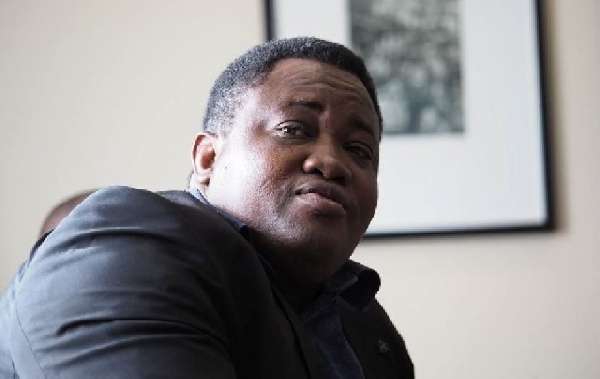Development Economist at the University for Development Studies (UDS), Dr Michael Ayamga, has expressed chagrin over Ghana’s decision to engage China on debt forgiveness, insisting that government should not have prioritized China in that regard.
According to him, government has delayed in clinching a deal with the IMF and progress so far has been slow as expectation was that, by the first quarter of the year, a conclusion would have been reached. He indicated that as it stands now, government is currently dealing with its creditors with the hope that it can get them to make the needed concessions that is required to secure the IMF deal.
“Yes, we have been able to conclude domestic debt exchange programme to a certain degree, we have made initial contact with our creditors and tried to engage China which we were asked to do. I beg to differ because I was not particularly pleased with our decision to prioritize China – we owe China $1.9 billion and we are talking almost $30 billion. So, even without China forgiving us our debt, if the rest come to the table, we should be fine.”
Dr Michael Ayamga
Commenting on whether a lack of engagement with China on debt forgiveness, would have augured well for the country, especially with the latter being Ghana’s biggest lender, Dr Ayamga revealed that the country would have done well in its negotiations with the rest of its creditors. He explained that government is being dragged into geopolitical discourses and tempted to believe that China is the “big elephant in the room” when it comes to successfully getting an IMF deal.
“Yes, we owe them $1.9 billion but if Brentwood and chunk of the debt in the Eurobond market – even from the institutions, if they come together and decide to write off our debt or give us some concession, even if China doesn’t play ball we should be able to go ahead. So, we can’t hinge our entire negotiations on China. I think that that grandstanding against China is only making things difficult…”
Dr Michael Ayamga
Ghana’s debt to its creditors
Dr Ayamga reckoned that Ghana owes collectively, creditors over $20 billion, and if they come to the table, China’s position on the matter is likely to change. Owing to this, he asserted that the decision of creditors should not be based on the stance of China.
“… I think that they should come to the table on their own merit and with the conviction that they want to help Ghana navigate this crisis, rather than saying that we have to get China to the table to agree to settle things before they do. Those arrangements can be made and those conditions can be put on the table that you are giving Ghana a reprieve on the condition that they do not pay Ghana with any of these resources. I believe that if they move, I’m sure China will also make a move…”
Dr Michael Ayamga
Touching on China’s footprint on African continent when it comes to debt collection, the development economist stated that the Asian country’s notoriety is not exclusive to it. He revealed that considering China’s debt history and negotiations, it has written off significant proportion of debts.
Dr Ayamga admitted that although there are situations where China has more or less tried to enforce certain conditions, he doesn not reckon China is as bad as it has been painted.
“I have no reason to be defending China but I think a lot of that revolves around conspiracy rather than reality… I think that if comes to debt diplomacy, China is as guilty as the West. As we are sitting here, I think that did we have to be owing under domestic debt treatment, which was an experiment and still is an experiment in the first place?”
Dr Michael Ayamga
Following this, Dr Ayamga questioned if government’s debt to its creditors is worth it. He quizzed whether Ghana could have considered another path of getting Ghana out of the economic crisis without domestic debt treatment.
“Let’s be serious, we have a debt, we owe about $57 billion or so and some of it is maturing in ten years time. Did we have to restructure all of it? If our intention was to create fiscal space for Ghana to grow, we could have looked at those debt that are due in the short to medium term and help the country restructure those ones and see whether it can grow and still meet its obligations with the long term debt…”
Dr Michael Ayamga




















